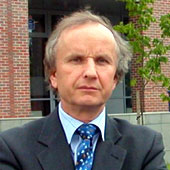The Uncertain Future: The World in 2111 (Part II)
What shape will the global economy take over the next century?
March 4, 2011
A century from today, some countries will rank among the most highly developed even without growth in output or migration, because they have a clean environment, something that cannot be transferred like physical goods and some services. These countries will become wealthy without having to undergo environmentally destructive industrialization or create a knowledge-based economy that, in the present sense of the concept, is more than they can afford.
Their asset will be their attractiveness to tourists. There are triads of these countries: Ecuador-Peru-Bolivia, Namibia-Botswana-Zambia and Laos-Cambodia-Burma. Mongolia will also be wealthy. It will be the first country in history to become a national park in its entirety, or perhaps rather a park for all humanity.
There will be new common-currency zones. Now we essentially have four of them — two in Africa, one in Europe and one in America. A century from now, there may be more than a dozen, including a zone in Central and South America that uses the dollar.
The American currency will be the world’s third choice. The main reserve currency will be the yuan, which will also circulate in several other Asian and African countries. The euro will be in second place. Not only will it last out the century, but it will circulate in more than 50 countries in Europe, Asia and Africa.
The “global,” our world currency, will still be on the drawing board because the world economy won’t yet be rational enough for it. That day may never come, for the same reason that Esperanto never really caught on.
The world economy will be far more integrated than at present, but it will still not make up a fully integrated organism on the model of the classical national economies.
The far more functional entities that emerge after the liquidation of the World Bank and the International Monetary Fund will be based on more democratic and pragmatic development economics, instead of using lofty slogans while serving the political interests of the wealthy states.
The new headquarters will be in Asia, above all because that is where one of the centers of economic thinking, especially of the theories of growth and development regarded as the mainstream, will be. China will use part of its reserves as seed capital, and as an inducement for others to join the new organizations.
Lifestyle changes
In 100 years, we will react to the water bill the same way we react to soaring electricity bills today, because water will be more and more expensive.
It will take an hour and a half to fly from Moscow to San Francisco. Getting to the airport and going through security will take longer than the flight across two continents and the ocean that divides them: a five- to six-hour trip, with only 90 minutes spent in the air.
War and peace
We will manage to dodge the Very Big War, which could kill 300 million people in a single day — equal to the entire human population 1,000 years ago. Nevertheless, small wars will break out here and there every few years, on all continents, although things will be worst where there is poverty in terms of output and wealth in terms of resources.
After all, some use must be found for the weapons that the rich countries produce. The best solution is to sell them and test them from time to time, in the poor countries that will be able to afford this idiotic expenditure for the next century, and the centuries after that.
Why it matters
Even if all this comes true, who among us today cares what the world will be like in 100 years, since we won’t be here? A hundred years ago, who cared what the world would be like a century onward — in other words, today? Few, if any, cared.
It’s always better to see than not to see. To understand more, rather than less. To imagine things accurately, rather than not at all. So many mistakes in the future can be avoided, just as our forebears could have saved us so much trouble. They weren’t up to it. They didn’t do it, and the price had to be paid. They didn’t think in a comprehensive, long-term way. They didn’t make comparisons. They didn’t move around enough in time and space.
If they had been better at doing that, we could have had it better.
Editor’s Note: This essay is excerpted from TRUTH, ERRORS, AND LIES: POLITICS AND ECONOMICS IN A VOLATILE WORLD by Grzegorz W. Kolodko. Copyright 2011 Columbia University Press. Used by arrangement with the publisher. All rights reserved.
Read Part I here.
Takeaways
In 100 years, we will react to the water bill the same way we react to soaring electricity bills today, because water will be more and more expensive.
The American currency will be the world's third choice. The main reserve currency will be the yuan. The euro will be in second place.
So many mistakes in the future can be avoided, just as our forebears could have saved us so much trouble. They weren't up to it.
